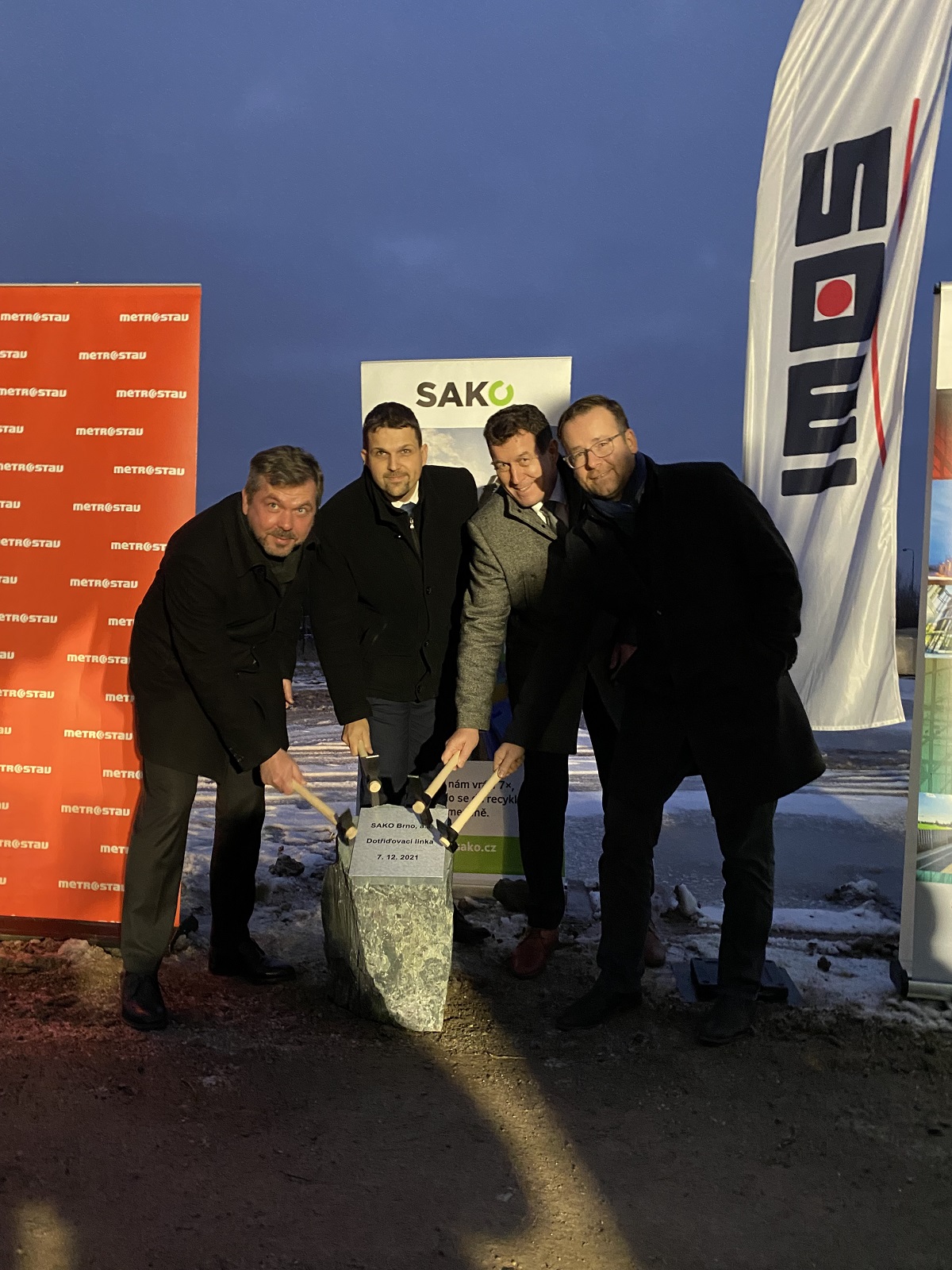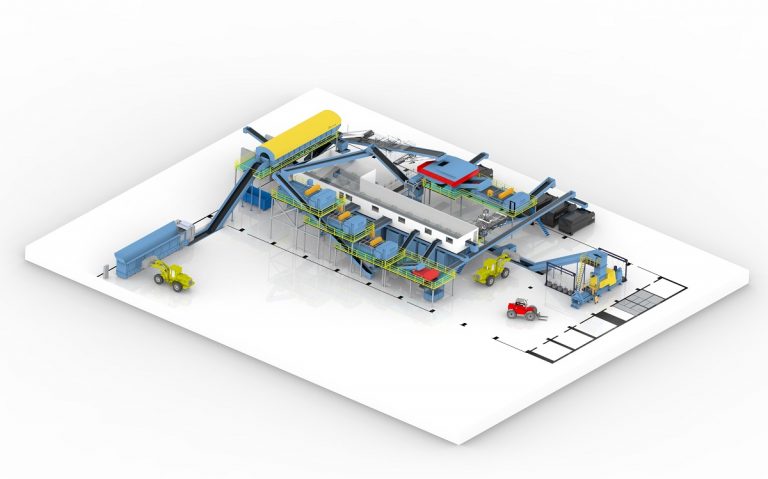The first stone of the CZK 330 million investment for a new automated sorting line to separate plastic and paper was tapped by First Deputy Mayor of Brno Petr Hladík (KDU-CSL) and Filip Leder, Chairman of the Board of SAKO Brno. The new sorting line will be the first fully automated sorting line in the Czech Republic, and could start operating as early as 2023. Credit: SAKO Brno

Brno, Dec 8 (BD) – “Although such lines have been operating for a long time in some European countries, in the Czech Republic it is a completely unique project, with a significant impact beyond the borders of our metropolitan area,” said Hladík. “The increased capacity of the machine line will serve the entire region and increase the percentage of materials successfully sorted. I see the ongoing investment as one of the strategic projects that will help us maximize the effect of recycling and take waste management to a higher level of quality. Many more reusable commodities will enter the circular economy.”
The new line is expected to sort 7,000 tons of plastic and 8,000 tons of paper a year, compared to 4,000 tons of plastic and 6,500 tons of paper sorted last year by the existing manual line, which is on the edge of capacity. The volume of separated waste is growing every year, and the processing capacity of the old line would soon not be sufficient.
“The amount of plastic is doubling every five years. Ten years ago, SAKO Brno removed 994 tons of plastic from the streets of Brno, compared to just under 4,000 last year. In some localities, daily collection is no longer enough,” said Leder. “The public is not very aware of this, but waste sorting is still done manually. It is demanding, insufficiently effective, and sometimes flawed. The automatic sorting line can sort a much wider range of plastics in a quality and quantity that the human factor simply cannot achieve.”
The new line is able to sort up to 4.5 tons of waste per hour, recognising plastics by shape, composition, and even color, and sorting them quickly and efficiently. The line will also have a system of drum, optical and ballistic machines for the separation of ferrous and non-ferrous metals, enabling the collection of cans, lids and tins. The powerful press with a capacity of 6 tons per hour compresses sorted plastic and paper into bales for further processing. The line will also include a polystyrene crusher.
The construction of the automatic sorting line will take approximately one year. “This year, we obtained a building permit, competed for contractors and selected technology suppliers. We are now starting to build. I assume that we will start trial operation in February 2023 and then proceed to approval,” added Leder. A quarter of the project is financed by the European Cohesion Fund under the Operational Program Environment.







